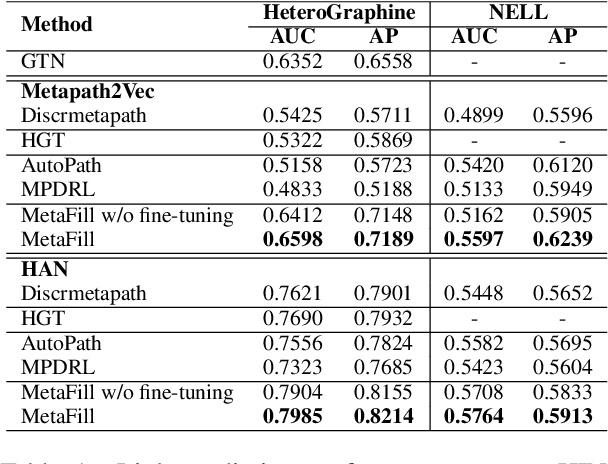MetaFill: Text Infilling for Meta-Path Generation on Heterogeneous Information Networks
Paper and Code
Oct 14, 2022



Heterogeneous Information Network (HIN) is essential to study complicated networks containing multiple edge types and node types. Meta-path, a sequence of node types and edge types, is the core technique to embed HINs. Since manually curating meta-paths is time-consuming, there is a pressing need to develop automated meta-path generation approaches. Existing meta-path generation approaches cannot fully exploit the rich textual information in HINs, such as node names and edge type names. To address this problem, we propose MetaFill, a text-infilling-based approach for meta-path generation. The key idea of MetaFill is to formulate meta-path identification problem as a word sequence infilling problem, which can be advanced by Pretrained Language Models (PLMs). We observed the superior performance of MetaFill against existing meta-path generation methods and graph embedding methods that do not leverage meta-paths in both link prediction and node classification on two real-world HIN datasets. We further demonstrated how MetaFill can accurately classify edges in the zero-shot setting, where existing approaches cannot generate any meta-paths. MetaFill exploits PLMs to generate meta-paths for graph embedding, opening up new avenues for language model applications in graph analysis.
 Add to Chrome
Add to Chrome Add to Firefox
Add to Firefox Add to Edge
Add to Edge